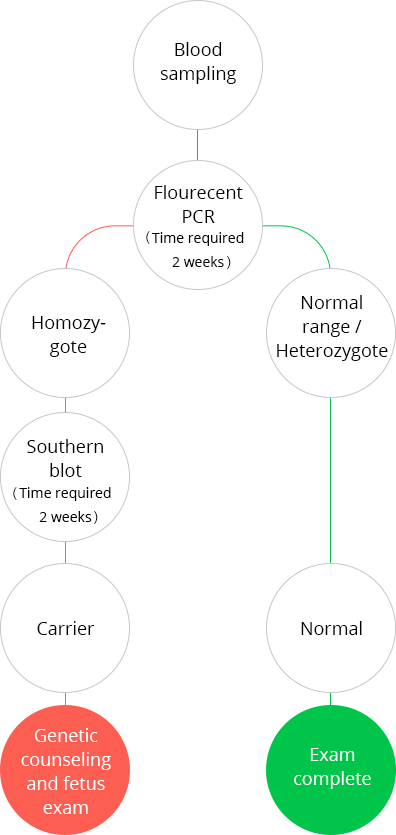PGD
PGS
-
FXS
Fragile X syndrome (FXS) is the second most common hereditary disorder following Down syndrome and affected individuals exhibit moderate intellectual disability (ID). Prevalence is 1 in every 2,000 boys and 1 in every 4,000 to 8,000 girls. 30% of males and 10% of females with ID have FXS.
Characteristic clinical symptoms include behavioral disorders, intellectual disability, enlarged testes, long face, protruding chin and prominent ears for boys and diverse types of intellectual disabilities for girls.
Do healthy women also need to be tested ?
FXS is a disorder that is typically inherited from the mother. It has been reported that 1 out of 200 to 300 women are at high risk for giving birth to a child with FXS. Also, premutation is known to be a cause of premature menopause. Thus, the test can help prevent the birth of an intellectually disabled child, ensure early diagnosis of premature menopause and allow the affected individual to better prepare for it.
The test is recommended to those with a family history (incl. family members and relatives) of autism, intellectual disability, development disorder or premature menopause.How is the “premutation carrier test” performed ?
DNA is extracted from the patient’s peripheral blood (3~5ml) to analyze the number of CGG sequence repeats in the gene that can cause the fragile X syndrome.
As for the results, the patient will be notified by the attending doctor in 2 weeks after testing if the result is “heterozygote” and in 4 weeks for “homozygote” (in this case, an additional test using the Southern Blot method is necessary).If the woman is a permutation carrier, how can the fetus be tested for intellectual disability ?
Women diagnosed as permutation carriers are at risk of giving birth to children with a disorder. Carriers can receive genetic counseling and opt to undergo a thorough fetus examination that includes amniocentesis and chorionic villi sampling.
Exam procedure


Why Choose CHA Fertility Center ?